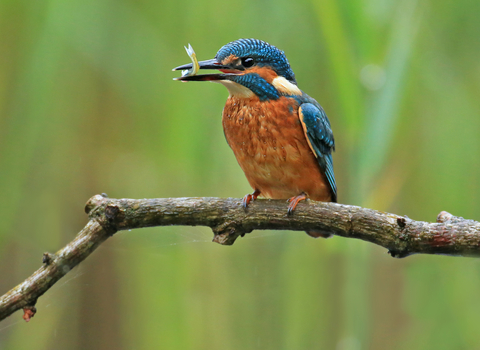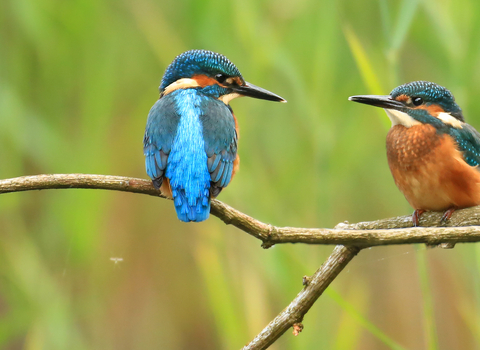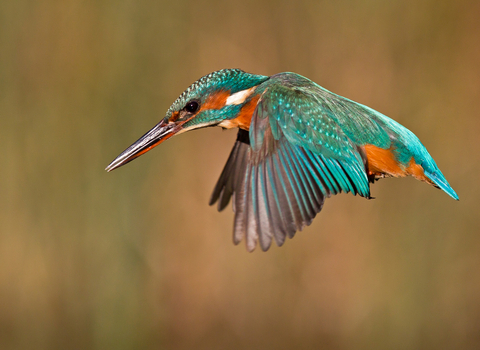
©Jon Hawkins Surrey Hills Photography

©Jon Hawkins Surrey Hills Photographer

©Malcolm Brown
Kingfisher
Blink and you may miss the fantastic kingfisher! This beautiful bird is easy to recognise thanks to its bright blue and metallic copper colours. It darts along the riverbank or sits patiently on a low branch over the water waiting for its next meal to swim by.
Scientific name
Alcedo atthisWhen to see
January to DecemberSpecies information
Statistics
Length: 15-17cmWingspan: 25cm
Weight: 40g
Average lifespan: 2 years
Classified in the UK as Green under the Birds of Conservation Concern 5: the Red List for Birds (2021). Protected in the UK under the Wildlife and Countryside Act, 1981.
About
The kingfisher is a colourful bird of rivers and streams. It can be spotted sitting quietly on low-hanging branches over the water, suddenly diving in to catch a small fish. Kingfishers live in burrow-like nests near lakes and other waterways, choosing a perfect spot for fishing!How to identify
The striking mix of its bright-blue back and metallic copper breast make the kingfisher unmistakable. Males have an entirely black bill, females have an orangey-red patch at the base.Distribution
Widespread, but absent from northern Scotland.Did you know?
There are about 90 species of kingfisher around the world, most of which have brightly coloured plumage. The Australian kingfisher - the familiar, laughing kookaburra - is the heaviest of all the kingfisher species.Watch
Kingfisher (https://vimeo.com/447524898)
Kingfisher by Russell Savory

